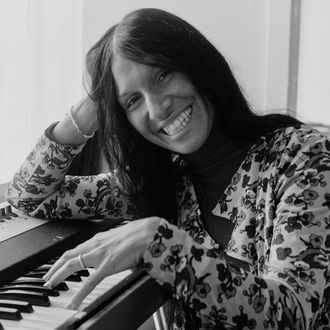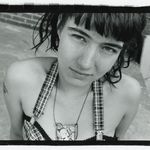
Update, Friday, November 24 at 9:15 p.m.: Buffy Sainte-Marie is again pushing back against an investigation that suggested that she fabricated the Indigenous ancestry she has claimed throughout her career. Last month, CBC’s The Fifth Estate documentary episode concluded that Sainte-Marie was born to a white Italian family in Massachusetts. The singer-songwriter previously defended her Indigenous background on Facebook. In a lengthy new statement obtained by The Hollywood Reporter, Sainte-Marie maintained that she has “never lied about my identity.” She said she learned about her Indigenous ancestry from her “growing up mother, who was of Mi’kmaq heritage,” in addition her own research. She added that she was later adopted into a Cree family “in accordance with Cree law and customs,” and noted that her Indigenous identity is rooted in a “deep connection to a community which has had a profound role in shaping my life and my work.” Sainte-Marie, who has won an Oscar and Canada’s Polaris Music Prize, has been an outspoken advocate for Indigenous communities.
She described CBC’s report as an “attack” on her character that was “full of mistakes and omissions,” claiming that the documentary relies mainly on a story made up by her brother and alleged childhood abuser, Alan. She said that she has never met his children, whom she does not blame for believing their father and repeating his claims. “This has been incredibly re-traumatizing for me and unfair to all involved,” she said. “It hurts me deeply to discover that my estranged family grew up scared of me and thinking these lies because of a letter I sent intended to protect me from further abuse from my brother.”
As for the birth certificate that the CBC used as evidence, Sainte-Marie stated that it “was common for birth certificates of Indian children to be ‘created’ by western governments after they were adopted or taken away from their families.” She concluded that she has never known if her birth certificate was real, but that she is also “not a piece of paper.” “Being an ‘Indian’ has little to do with sperm tracking and colonial record keeping,” she said. “It has to do with community, culture, knowledge, teachings, who claims you, who you love, who loves you, and who’s your family.”
Original story published October 27, 2023 follows.
The singer-songwriter Buffy Sainte-Marie has claimed Indigenous ancestry since her rise in the 1960s, becoming an icon of Indigenous and Canadian culture in the process. But a new report has called Sainte-Marie’s identity into question. A CBC investigation revealed that Sainte-Marie had not been adopted by a white Italian family in Massachusetts, as she had previously said; she was actually born from them. A birth certificate shows that Sainte-Marie was born Beverly Jean Santamaria, to a white family in Stoneham, Massachusetts. Sainte-Marie, who had previously claimed she could not find her birth certificate, has defended her background in response. “I am proud of my Indigenous-American identity, and the deep ties I have to Canada and my Piapot family,” she said in a statement on Facebook. Sainte-Marie, who has won an Oscar and Canada’s Polaris Music Prize, has long been one of music’s more visible advocates for Indigenous communities.
Sainte-Marie has said she was unsuccessful in attempts to find her birth certificate and alleged it had been destroyed. Her lawyer also disputed the Massachusetts birth certificate to the CBC. But the CBC report also found many discrepancies in how Sainte-Marie claimed her identity throughout her career. In biographical materials, the musician had claimed she was born on the Piapot First Nation, a Cree community in Saskatchewan, Canada, and adopted after her mother’s death. But in early interviews, Sainte-Marie oscillated between claiming Algonquin, Mi’kmaq, and Cree ancestry. Sainte-Marie was later adopted into the Piapot family, after visiting the reservation. Members of the Piapot family defended Sainte-Marie’s Cree connection, telling the CBC, “Every understanding of our spiritual practices, the history our grandparents shared with us and the traditions of the Cree refute your suggestion that our Auntie Buffy is not Indigenous or a member of our community.”
However, members of the Massachusetts family Sainte-Marie grew up in questioned her Indigenous claims. Her niece told the CBC that Sainte-Marie is “clearly not Indigenous,” while her sister refuted claims Sainte-Marie was adopted. Records, including a 1945 life-insurance policy and the 1950 census, list Sainte-Marie as white. Her brother had written to newspapers to dispute Sainte-Marie’s Indigenous ancestry, telling the Denver Post in 1972, “To associate her with the Indian and to accept her as his spokesman is wrong.” Sainte-Marie reportedly made legal threats against her family over questioning her background.
Sainte-Marie retired from performing earlier this year due to arthritis and a shoulder injury. She declined an interview with the CBC through her lawyer, who said, “Ms. Sainte-Marie is entitled to a reasonable expectation of privacy about her personal genealogical and family history.” In an independent statement, Sainte-Marie emphasized her own uncertainty of her background. “I have always struggled to answer questions about who I am,” she said. “For a long time, I tried to discover information about my background. Through that research what became clear, and what I’ve always been honest about, is that I don’t know where I’m from or who my birth parents were, and I will never know. Which is why, to be questioned in this way today is painful, both for me and for my two families I love so dearly.”





